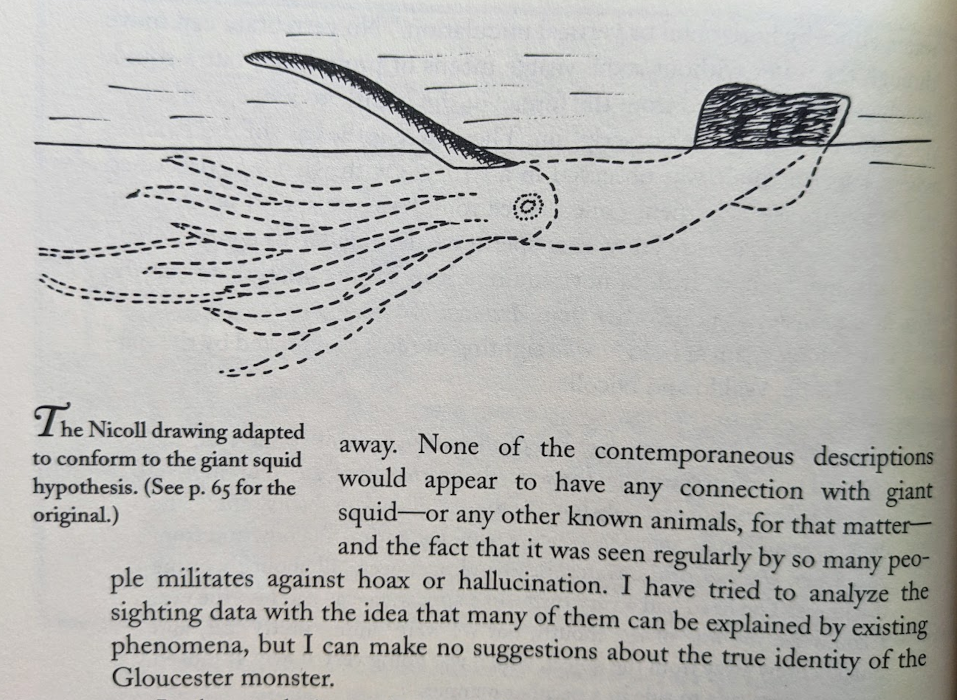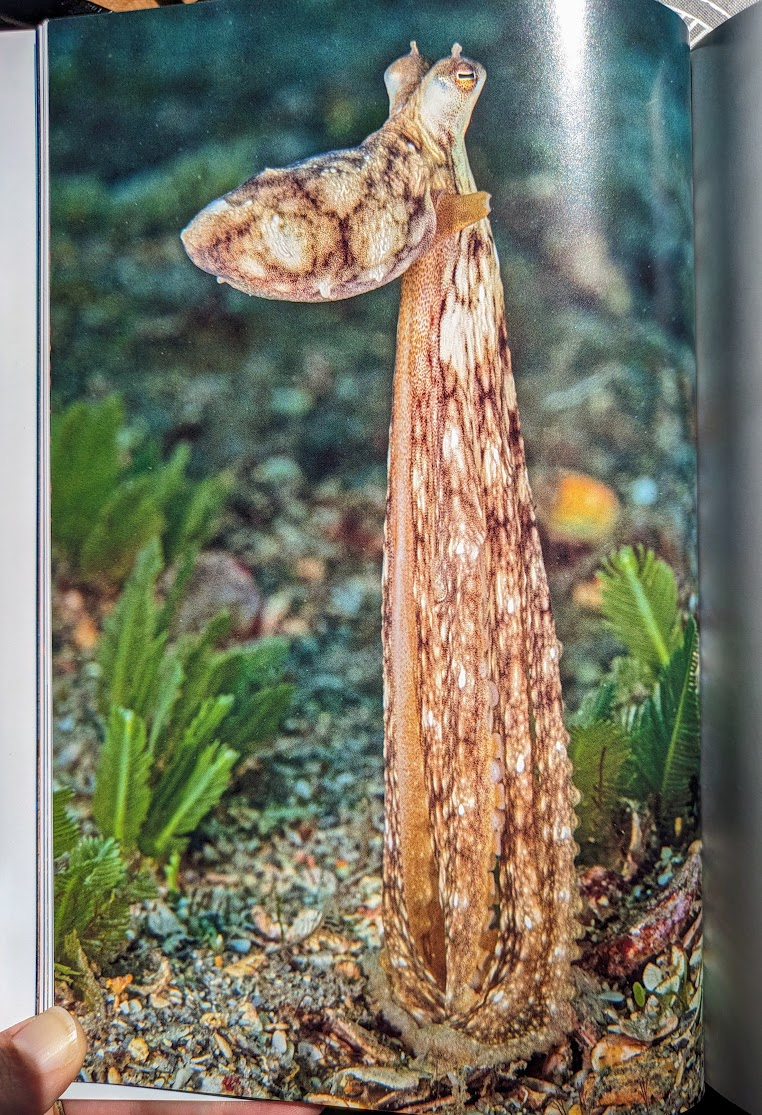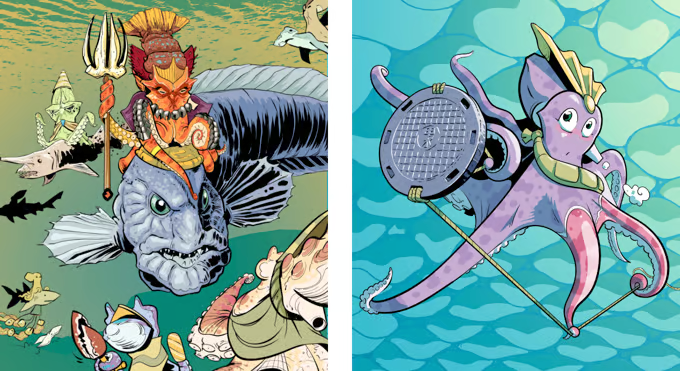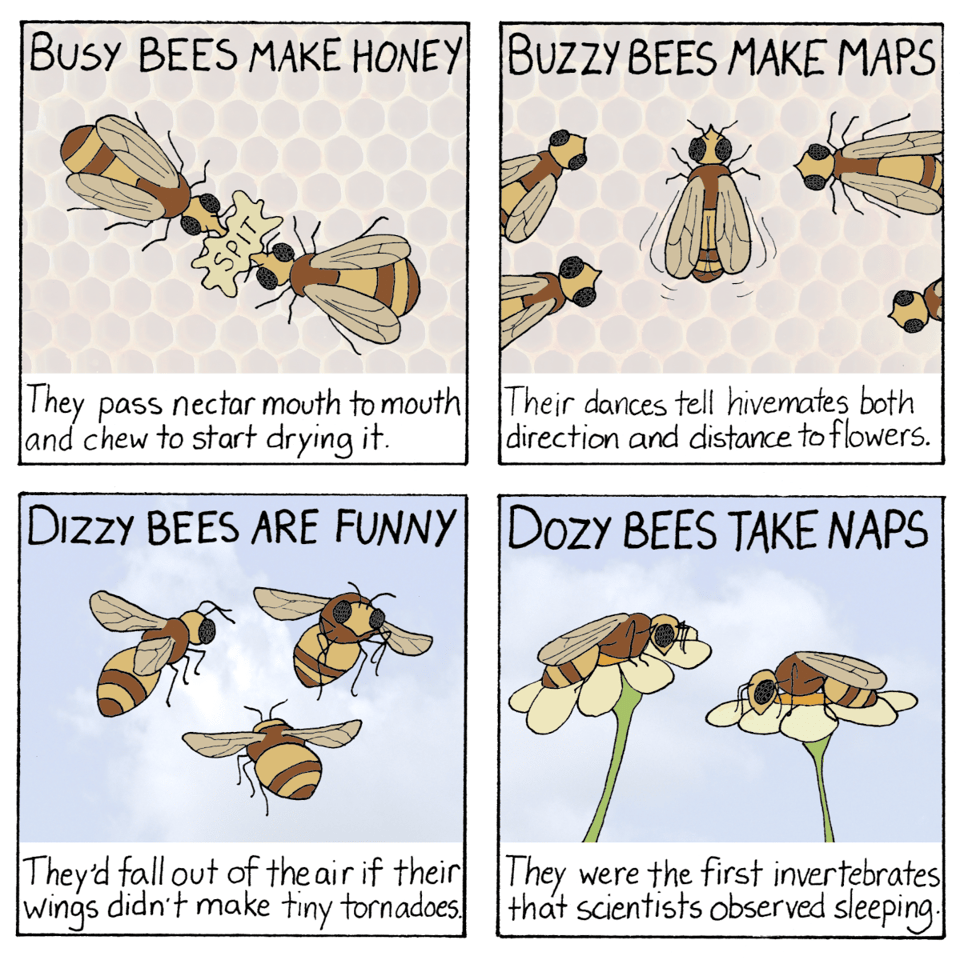The OctoPost: Cephalobooks (Bookalopods?) Past, Present and Future
Cephalopod Books
Past
Richard Ellis, author and artist of abundant works about marine life, passed away on May 21st. Ellis’s were some of the first books that I found after becoming fascinated with cephalopods as a kid; Monsters of the Sea (1994) and The Search for the Giant Squid (1998) still have positions of honor on my bookshelf. As a larval writer and illustrator, I was starry-eyed over his skill in both fields.
I love what Ellis said of his work (quoted in the NYT obituary): “I do it so people will say, ‘Wow, I didn’t know that’ or ‘Isn’t that cool! Look at what octopuses can do!’” That’s why I want to do it, too.
His older books are inevitably out of date with regards to the latest science (as mine will one day be), but they remain captivating to read. Monsters of the Sea is especially delightful in its attempts to plausibly explain various sea monsters, for example:

Present
After watching National Geographic’s Secrets of the Octopus, I read Sy Montgomery’s companion book by the same title. I’ll admit I wasn’t sure if I would love it as much as her other books (for example, Of Time and Turtles). Sy’s writing is always fantastic, but I figured the subject matter might feel too familiar, after all my research for The Lives of Octopuses.
I’m happy, as always, to report that I was wrong.
There’s so much to say about octopuses that Lives and Secrets don’t actually overlap much. Plus, Sy’s deep reporting added fresh layers to even familiar stories. I hadn’t known that the oldest account of an octopus escape from an aquarium dates to 1873 (just a couple of years after the death of Jeanne Villepreux-Power, inventor of aquariums)! Secrets of the Octopus is funny, touching, mind-expanding—and filled with knockout photos.

Future
In 2022, a self-described “octopus cartoonist” named Sam Julian approached me after an event in San Franscisco. Now, sometimes people tell me about their creative project, and while I’m happy they’re pursuing their passion, I’m not the right audience for it. But when I checked out Sam’s comic Octopolis, I was hooked. Octopolis is for ME. And, if the success of the Kickstarter campaign is anything to go by, it’s for a lot of other people too.

Octopolis is top-notch representation of cephalopods in science fiction. Sam used real research to inform everything about their imagined culture, language, technology, and society. I love how even at their most adorable or dramatic, the inhabitants of Octopolis never lose their anatomical accuracy. The story is a delight, and the characters bioluminesce with personality.
The Kickstarter is already 300% funded, and there’s still a week to go. If it sounds like your jam, I highly recommend getting in on it!
My News
I’ve got three talks on three different topics coming up.
June 19: Nursery Earth at the St. Francis Yacht Club (12:30pm Pacific, in person and livestream)
June 20: Nature’s Ink Guns for NightLife: Inked at the California Academy of Sciences (6pm Pacific, in person)
August 26: Understanding Cephalopod Behavior for Smithsonian Associates (3:45pm Pacific, online)
Funny Pages
I’ve been leaning into a love of bees lately. My daughter did a school project on honeybees, and I reviewed an upcoming book about the importance of non-honey bees. Honeybees are only one of the twenty thousand bee species who share our planet! They are, however, the best studied, and therefore the source of all the facts below.
My spouse and I composed the quatrain on a road trip last year.

Add a comment: